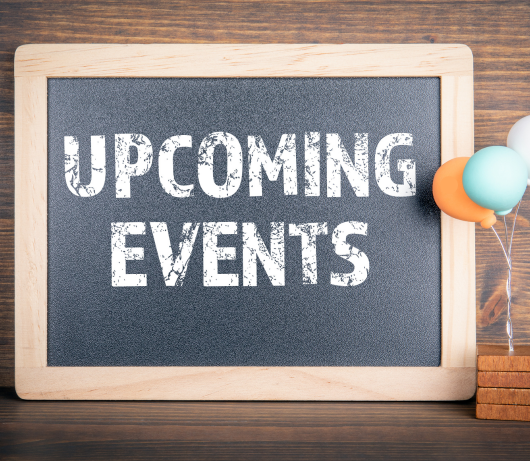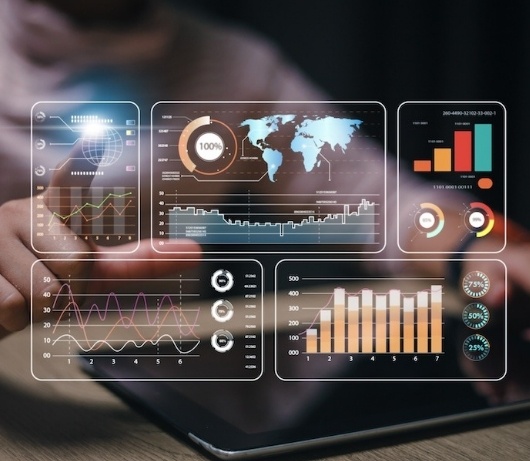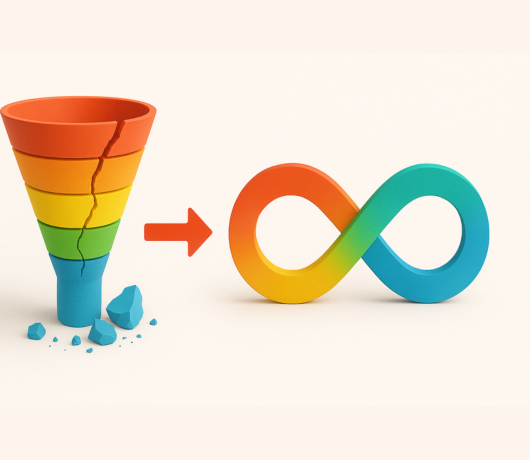The Complete Guide to Mastering Event Marketing with HubSpot
The power of real-time, face-to-face interaction remains as compelling as ever. No matter how advanced the digital era becomes, the energy and authenticity of live engagement create an unparalleled experience. As long as this holds true, event marketing will continue to be a successful strategy for brands looking to build deeper connections with their audiences.
Whether in-person or virtual, events offer a dynamic platform for companies to promote their brand, product, or service, with opportunities to participate as hosts, co-hosts, or sponsors. In fact, events are a proven driver of business results—44% of marketers report a 3:1 ROI from event marketing, and 67% of B2B marketers rank it as the second most effective marketing tactic.
Here are just a few ways events can deliver measurable impact across the customer journey:
- Increase customer engagement: Events create an interactive environment where customers can experience your brand firsthand, creating deeper connections through live discussions, Q&A sessions, and hands-on product demos.
- Generate leads: By capturing attendee information through event registrations, businesses can build a pipeline of high-quality leads with genuine interest in their offerings.
- Educate prospects and customers: Events provide a platform to showcase industry expertise, deliver valuable insights, and demonstrate product benefits, helping prospects and customers make informed decisions.
- Upsell customers: Engaging existing customers through exclusive events, VIP sessions, or product deep dives can highlight advanced features and premium offerings, increasing the likelihood of upsells and long-term retention.
Optimizing Your Event Marketing Strategy with HubSpot
HubSpot is a powerful all-in-one platform that supports the entire event lifecycle, from promotion and registration to post-event follow-up and lead nurturing. Here’s a breakdown of how HubSpot streamlines each stage to help you maximize event impact and ROI.
1. Event Promotion and Registration
Landing Pages & Registration Forms – An event needs a digital storefront that tells its story properly, describes the venue (or online platform) and invites people to register.
HubSpot enables you to create attractive landing pages optimized for event registrations. You can easily add a customizable form to collect essential attendee information and use the CRM integration to ensure that every registrant is automatically added to the database for future marketing efforts.
Email Marketing Campaigns – Email marketing is a cost effective way to market your events. HubSpot enables businesses to create and automate targeted email sequences for event promotions, ensuring that invitations, reminders, and follow-ups reach the right audience at the right time. With personalized subject lines and dynamic content, you can target specific people and make your emails appealing to different crowds.
Social Media & Paid Ads – Promote your event by scheduling and automating posts across multiple social platforms. With Hubspot tools, you can track interactions, measure campaign effectiveness, and adjust strategies based on performance. Additionally, HubSpot’s ad tracking capabilities allow marketers to run and monitor paid campaigns on platforms like Facebook, LinkedIn, and Google Ads, ensuring maximum reach and ROI for event promotions.
Integrating with Event Platforms – HubSpot integrates seamlessly with event management platforms like Eventbrite, Zoom, Contrast , and many others, ensuring that all attendee data is synced in real-time. Using integrations eliminates the need to enter data manually across platforms, reducing errors and ensuring marketing and sales teams have up-to-date attendee information.
Moreover, integrations are easy to implement and significantly enhance your capabilities. They help you streamline the entire event flow, from promotion to follow-up, so you’re not juggling disconnected tools or duplicating efforts.
Marketing Events
HubSpot Marketing Events is a powerful feature that helps you seamlessly manage and track all your marketing-related events—such as webinars, conferences, and virtual meetups—within the platform. Essentially, a marketing event is a CRM object, similar to contacts and companies, that enables you to track events, along with the contacts who registered and attended. You can do much more with it like capture attendance data, and trigger automated workflows based on participation. This makes it easy to measure ROI, personalize follow-ups, and integrate event insights into your broader marketing strategy.
Learn more about how to use the marketing events feature in this guide.

2. Managing Event Registrations & Attendees
Segmenting Attendees – Event participants are often a diverse group of people, so why not target each group in a personalized manner?
Smart list segmentation makes it possible to categorize attendees based on registration status, engagement level, and preferences. You can then tailor messaging for different segments, such as VIP guests, returning attendees, or first-time participants. By delivering relevant content to each group, you potentially increase engagement and create a more personal event experience.
3. Tying It All Together With Workflows
Hubspot workflows are powerful tools that help to map out the customer journey and your communication with them before, during and after the event. It’s an effective way to automate repetitive tasks and save your team valuable time and energy so they can focus on more high level matters.Activate workflows to automate the entire registration process, send instant confirmation emails and event details to attendees upon sign-up. Additionally, you can use it to send reminders as the event approaches to reduce no-shows, as well as trigger personalized follow-ups after the event.
Workflows can improve your event’s ROI since they ensure leads are nurtured and converted after the event. Here’s an example workflow for an event:
1. Before the Event (Lead Nurturing & Reminders):
- Trigger: A person registers for the event via a HubSpot form.
- Actions:
- Instantly send a confirmation email with event details.
- Schedule reminder emails leading up to the event (e.g., 1 week before, 1 day before, 1 hour before).
- If a registrant hasn’t opened a reminder email, send a follow-up message via SMS or another channel.
- Offer relevant content (blog posts, case studies, videos) to build anticipation.
2. During the Event (Engagement & Participation)
-
- Trigger: The event is live, and attendees have checked in.
- Actions:
- Send a welcome message with key event highlights.
- Share a real-time poll or survey to boost engagement.
- Deliver exclusive content (session guides, speaker bios, presentation slides) based on attendee interests.
-
- Trigger: The event has ended.
- Actions:
- Send a thank-you email with key takeaways, session recordings, or additional resources.
- If an attendee is engaged with a specific topic, enroll them in a personalized nurture sequence with relevant offers or content.
- Distribute an event feedback survey to gather insights for future improvements.
4. Post-Event Follow-Up & Lead Nurturing
Lead Scoring & Follow-Up Campaigns – Try HubSpot’s lead scoring system for prioritizing attendees based on engagement levels, session participation, and survey responses. High-intent leads can be enrolled in automated follow-up campaigns that provide additional resources, personalized offers, or invitations to upcoming events. This ensures that warm leads stay engaged and move further down the sales funnel.
Sales Hand-Off – This part is critical for making a true, quantifiable impact. With HubSpot’s CRM integration, engaged event attendees can be automatically assigned to sales representatives for personalized outreach. Sales teams receive detailed insights into each attendee’s interactions, enabling them to tailor their follow-ups effectively. This way, hot leads are nurtured properly, and turn into lasting connections.
Measuring Event Success with HubSpot Analytics
- Tracking Registrations, Engagement & Attendance – HubSpot’s reporting tools enable you to track event registrations, attendance rates, and drop-off points. By analyzing this data, marketers can identify trends and optimize future event strategies. Moreover, the analytics dashboard provides insights into attendee interactions, including email open rates, click-through rates, and session participation. This lets you assess which content resonated most with attendees and adjust messaging for future events accordingly.
- ROI Analysis – Well-executed events are engaging and enjoyable, but in business, success ultimately comes down to the bottom line. So how do you measure it?
HubSpot enables you to track the impact of event marketing on revenue by connecting attendee data to sales outcomes. Measure how many event attendees converted into customers, the value of deals closed post-event, and get real numbers for the overall return on investment. These insights help justify event marketing efforts and inform your future budget decisions.
Final Note
At the heart of event marketing there lies true business potential: transforming fleeting moments into enduring relationships. With HubSpot, you can automate, personalize, and measure every step of the journey, creating meaningful experiences that extend well beyond the event itself. When done right, event marketing is not just about ROI—it’s about building a community that keeps the conversation going and appreciates your brand. And the more you learn from each event, the smarter and more impactful your next one becomes.





